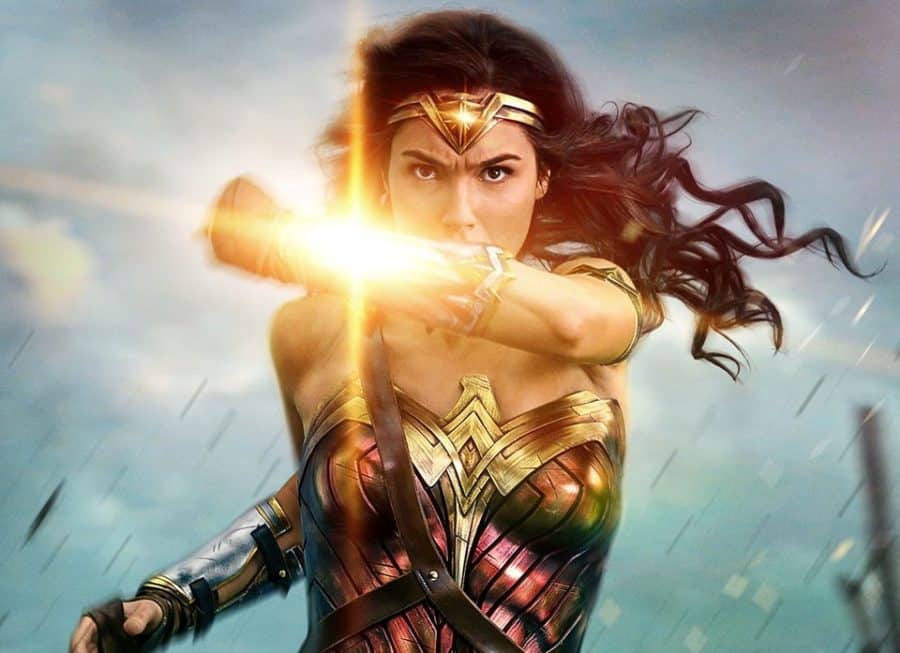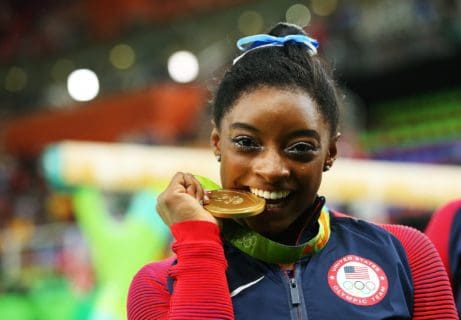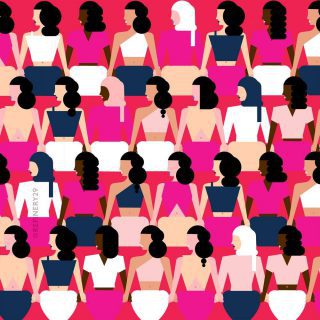Where in the World is Wonder Woman?

It’s recently come to light that Wonder Woman is receiving the marketing cold shoulder. The lack of promotion in comparison to other DC films such as Batman vs. Superman and Suicide Squad has led to claims that Warner Brothers is sexist and purposefully designing the movie to fail because of its feminist content. Meanwhile, fans are worried about Wonder Woman’s box office gross because it could determine the future of movies about other strong-willed comic book women. But is Wonder Woman’s lack of promotion due to sexism, timing, or something else entirely?
Wonder Woman’s Feminist Fight
Wonder Woman is the first female superhero movie since comic book films stormed into theaters nearly two decades ago. Diana, aka Wonder Woman, is already a huge feminist icon because she’s strong, independent, and outspoken. Wonder Woman represents truth, but the role of the character didn’t start out this way. DC has a past of pushing her into stereotypical “womanly” roles during the “Golden Age of comics,” including making her the secretary of the Junior Justice League.
Gal Gadot has admitted that she wanted a feminist framework for the Wonder Woman film, but she may have an uphill battle. The entertainment industry has commonly avoided anything labeled as feminist in the past, and even shows that can be construed as feminist are given a different title.
The Handmaid’s Tale is a good example of this issue as it’s described as “humanist.” At the Tribeca Film Festival, Elizabeth Moss, the leading actress, claimed she “never intended to play Offred as a feminist.” While Moss is right when saying “women’s rights are human rights,” we’ve had to fight tooth-and-nail for the rights that we currently have — something The Handmaid’s Tale shows perfectly because the worth of women in the show are determined based on their usefulness for men.
So the obvious conclusion is that Wonder Woman is getting less marketing because it’s a feminist work, right? Fortunately for the movement, this statement isn’t completely true. Gal Gadot has had a feminist view for the Amazonian princess since early 2016, and feminism doesn’t automatically mean a movie will be a box office bust anymore.
Feminism is quickly gaining steam through mainstream media — just take a look at Beauty and the Beast. Even though it’s a “tale as old as time,” Emma Watson has promoted her character as a feminist by designing Belle to be an inventor rather than an inventor’s daughter and ditching Belle’s pacifism. “She’s in charge of her own destiny,” Watson has explained in multiple interviews. The view didn’t hurt the film, and even encouraged some moviegoers to see the changes. Beauty and the Beast had a ton of cross-promotions with Kohl’s, Microsoft, Twinning, Neutrogena, and several other well known brands. Overall, Beauty and the Beast has made more than a billion worldwide, with $488 million domestically. Feminism obviously didn’t hurt this film — in fact, it may have even contributed to its success.
By the Numbers
Wonder Woman’s lack of promotion was first called into question in a piece from Uproxx, which compared the number of trailers and promotional videos for Suicide Squad and Wonder Woman on the Warner Brothers YouTube channel.
Vanity Fair did some digging to discover that Warner Brothers spent $2.6 million on television ads for Suicide Squad, but they’ve already spent more than $3 million for Wonder Woman. Ads for Wonder Woman have shown during the Kids Choice Awards and the N.C.A.A. Finals with additional promotions during South by Southwest and Wondercon.
While the Vanity Fair article looks only at TV ads, we can see that Warner Brothers isn’t spending less, but rather spending differently.
The Deadpool Effect
Television ads aren’t the only way that movies are promoted. The Guardians of the Galaxy Vol 2 saw a new dessert from Dairy Queen, a new Doritos bag, and more. You may have heard of the infamous thinkThin protein bars that are sponsoring Wonder Woman, seen the Wonder Woman Dr. Pepper promotions, or noticed the tons of action figures, but that isn’t all. Danica Patrick will be racing an exclusive Wonder Woman car during the Go Bowling 400 on May 13th.
The product marketing for Wonder Woman still pales in comparison to Batman v Superman, which saw promotion through Turkish Airlines, Doritos, cereal boxes, batteries, and so much more. Why did Batman v Superman get so much more cross-marketing? It had a much bigger budget. If there is an injustice for this film, it’s the fact that Warner Brothers gave it a paltry $100 million budget. At first, $100 million seems like a lot, but it’s less than half of Batman v Superman’s $250 million budget and less than Suicide Squad’s $175 million budget. While looking at the numbers, the clear crime is that Wonder Woman got a small budget when compared to other big DC movies.
It’s possible that DC is attempting to lower the budget for its movies to compete with Marvel, which usually spends less than $200 million per movie. Deadpool, one of Marvel’s most popular movies to date, had a budget of $58 million; Guardians of the Galaxy had a $170 million budget even including all of its marketing. By setting Wonder Woman up with a lower budget with a higher profit could mean more comic book movies with a female lead in the future.
Learning From DC’s Mistakes
In defense of DC’s decreased marketing for Wonder Woman, it did receive complaints about the marketing for its latest movies as well. Suicide Squad nearly had a lawsuit for false advertising, and Batman v Superman marketing had too many trailers that ruined the plot. As someone who saw both movies, I agree with the complaints. This may be why we haven’t seen dozens of trailers for Wonder Woman.
The marketing push for Suicide Squad is understandable when you get down to the details. The average person doesn’t know much about the Suicide Squad comic books or the characters. Before the trailers, which were mostly “Meet So-and-So,” how many people knew who Slipknot and Boomerang were? Most knew Harley Quinn and the Joker and both were a huge pull for moviegoers, but DC had to explain everyone else in the movie (and for as much as the Joker was marketed, he was barely even in the movie — hello, false advertising).
Batman v Superman is the same to an extent. Nearly everyone knows those characters, but the average moviegoer isn’t a devoted comic book fan and probably had no idea why Batman and Superman were fighting. Another huge point I need to bring up is that Wonder Woman’s appearance was a huge promotion for Batman v Superman. In fact, it was the only reason many fans (including myself) saw the movie.
So far, Wonder Woman trailers haven’t shown us the main villain and only a few scenes here and there. Is the villain Ares or will it be Wonder Woman against World War I? We don’t know at the moment, and that in part is genius from a marketing perspective because it makes fans curious. However, with just a month before the movie premieres, I have a feeling we’re going to be figuring out more of the story very soon.
Stepping Out of the Marvel Shadow
It’s no secret that Marvel and DC have been battling for the highest-grossing comic book movie, and so far, Marvel has won. It’s led to some pretty ugly thinkpieces, including the claims that Suicide Squad tried to copy Guardians of the Galaxy’s success. Marvel movies have made serious bank from every release while DC has slightly fallen behind.
I’m bringing this up because it’s completely possible that DC didn’t want to promote Wonder Woman to have its precious marketing dollars drowned by Guardians of the Galaxy Vol 2.
The only proof of this is the release of Batman v Superman in comparison to Deadpool. Like Guardians of the Galaxy Vol 2 and Wonder Woman, Batman v Superman and Deadpool released a mere month apart. Both movies had a massive marketing push, and Batman v Superman did make quite a bit of money. However, Deadpool still grossed more domestically and made much more profit considering its budget was only $58 million while Batman v Superman was $250 million.
Sexist or Nah?
It appears DC didn’t want to make the same mistake again and make less profit by competing with Marvel. Now that Guardians of the Galaxy Vol 2 has released, we’re sure to see more marketing pop up for Wonder Woman. Recently, YouTube and Hulu have started to include ads for the movie, and New York is covered in Wonder Woman posters. Plus, movie theaters in Texas are hosting controversial women-only screenings of the movie.
My predictions: we’re about to see a giant amount of advertising and marketing for this movie, so don’t give up hope just yet. Keep an eye out and don’t forget to see Wonder Woman in theaters on June 2nd.
Featured image via wonderwomanfilm
Last modified on August 7th, 2018






Show Comments +